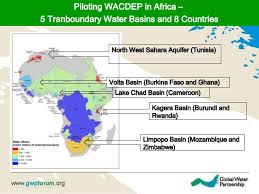ENVIRONMENTAL DEVELOPMENT AND SUSTAINABILITY IN THE LAKE CHAD BASIN

Lake Chad Basin Commission

Introduction: The Lake Chad Basin Commission (LCBC) was established on 22nd of May 1964 by the four countries that border Lake Chad: Cameroon, Niger, Nigeria and Chad. The Republic of Central Africa joined the organization in 1996, Libya was admitted in 2008. Observer status is held by Sudan, Egypt, the Republic of Congo and the Democratic Republic of Congo and N’Djaména, Capital of Chad where the Headquarters of the Commission is situated. The mandate of the Commission is to sustainably and equitably manage the Lake Chad and other shared water resources of the Lake Chad Basin and to promote regional integration, peace and security across the Basin.
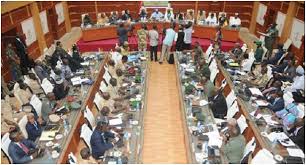
We have achieved tremendously during the 2006 Conference in Chad with the members of the Nigeria delegation on the Resuscitation of the Lake Chad Basin. Those in attendance includes The President of Lake Chad Basin Commission (2003-2007) Hon Mohammed Umara Kumalia, the Secretary LCBC, Ministers, Parliamentarians from Member States of the LCBC, Cameroun, Niger, Chad, Nigeria, Republic of Congo and DR Congo, International Partners, Environmental organisations, Non-governmental organisations and the members of the press. All the programmes were good and interesting including the briefs on the international donor conference programme that would follow later. When the project is implemented it will benefit over 30 million people.
Lake Chad Basin
The Lake Chad is shared by Chad, Niger, Nigeria and Cameroon. It is located between 12° and 14° 20 N, 13° and 15° 20 E. The sailing area is situated at the altitude of 283 m.
The Lake Chad basin covers a surface area of about two million square kilometer. Which is equivalent to the Caspian Sea, which existed 600 years AC. The Lake Chad is fed by the Chari and Logone rivers. In the western part, another tributary, the Komadogou Yobé also crosses a marshy plain. It displays three major types of landscape.
- Many islands located in the eastern bank, which match the emerged summit of immerged erg dunes.
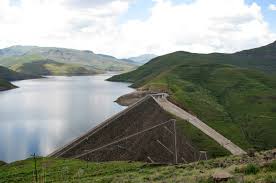
- Areas of open water
- Rooted or floating vegetation islands called bench islands (mostly Cyperus papyrus and water reeds).
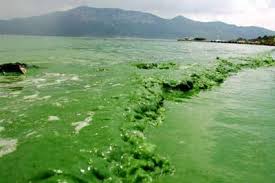
Environmental Development and Sustainability
The Lake Chad is progressively receding due to increase in atmospheric temperature that lasted for extended period of time (Climate Change). The environmental issues identified were the unstable of the ground water movement and fresh water availability, water pollution, ecological effects of biodiversity, and effects of biodiversity on ecosystems. sedimentation in rivers and water bodies.
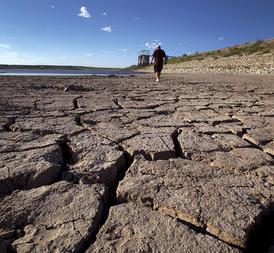
The environmental effects by the receding Lake has turned millions of economically buoyant Nigerians to near abject poverty, forcing them to become refugees in neighbouring countries.
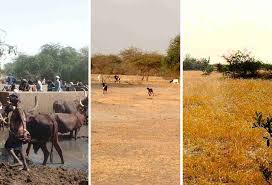
The Lake Chad basin was in its key-days, one of the Africa’s leading fields in the production of rice, wheat, beans, maize, potatoes, onions, dried fish and livestock, most of which were traded in Nigeria.

The federal government needs to take the lead in the current international efforts to save the lake, it is of strategic interest to Nigeria government for the Lake to be resuscitated because to create millions of jobs, reviving of the multi-billion naira federal government investment Chad Basin Development Authority and also for the exploration of Oil and Gas . The neighbouring Countries have already gone far in the Oil and Gas industries tapping from the same source of the Lake Chad.
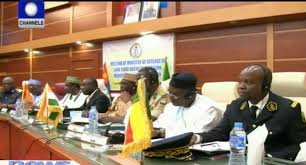
To sustain a awareness and development process by way of several different tracks requires the ability to inform with facts, to be able to inspire, and some practical engineering of mandates and budgets. It needs to be able to drive discourse at high level to inspire political interest.

Environmental issues are already front and centre in Nigeria’s media eye. In recent years, the media has focused on climate change, promoting in particular the need to plant trees. The impact of Climate Change in the Lake Chad has highlighted the need for a media spotlight to put the issues to the public, to encourage debate on causes and solutions.
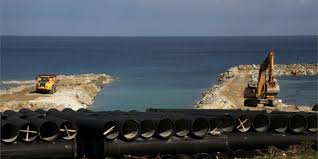
Suggestions
A. Strategic Approach
The central issue to address is; to widen and deepen understanding of the strategic importance of the environment, across the political and institutional board, to encourage its prioritization, and to stimulate demand for further donor support for Lake Chad Basin water transfer.
B. Practical Guide to Supporting Key Drivers
The main aim is to kick-start a process for environmental awareness and strategic development, beyond what exists, to lay the foundations for re-orienting political, economic, institutional, and personal mindsets.
1.Target the University of Maiduguri, ABU, Ibadan, and Port-harcourt to build solid knowledge and data on environment and natural resources in terms of

- Improved quantity and quality of water in the Lake Chad Basin
- Restoration, conservation and sustainable use of bioresources in the Lake Chad Basin
- Conservation of biodiversity in the Lake Chad Basin
- Restoration and preservation of ecosystems in the Lake Chad Basin
- Strengthened participation and capacity of stakeholders, and institutional and legal
- frameworks for environmental stewardship for the Lake Chad Basin (all factors of production) as central to core business and profits
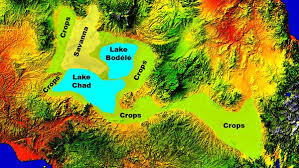
2. Support private sector associations to formulate the National Business Agenda vis a vis the Environment as the foundation for profits and national development.
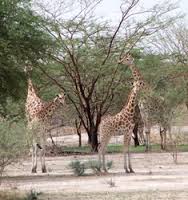
3. Run media training workshops for conventional broadcasters and broadsheet journalists which focus on the wider importance of the environment to

Service médical à domicile de Medici Generici à Rome
Notre équipe fournit un service de soins de santé à domicile, garantissant professionnalisme et confort pour les patients à Rome.
the economy, to stability, development, and how it affects the ordinary Nigeria consumer.

We sincerely appreciate the opportunity and commitment of the Nigeria delegation headed by the President Hon. Mohammed Kumalia towards the agenda of resuscitating the Lake Chad Basin by member countries and to the Friends of the Lake Chad, thank you.
Prepared by Adam Ali Dimari

